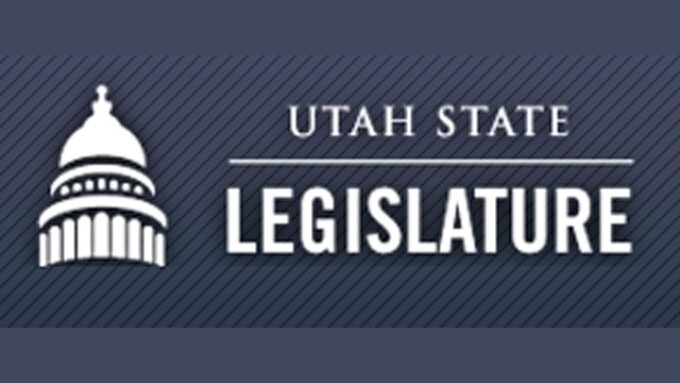SALT LAKE CITY — Anti-porn propagandists have scored a victory in their crusade of intolerance against free expression and consumer demand, with Utah’s House of Representatives passing a resolution that declares porn to be a public health crisis.
Tellingly, the zealots at the National Center on Sexual Exploitation authored the resolution, which was unanimously passed with a late-night vote of 75-0.
It is oft-reported that predominantly Mormon Utah has the highest per-capita rate of porn consumption in the U.S., which may have influenced lawmakers into distancing themselves from this popular pastime.
Sponsored by Senator Todd Weiler and Representative Curtis Oda, the text of the resolution reads like an excerpt from the Scopes “Monkey Trial,” proclaiming that “pornography is a public health hazard leading to a broad spectrum of individual and public health impacts and societal harms [that requires] education, prevention, research, and policy change at the community and societal level in order to address the pornography epidemic that is harming the citizens of Utah and the nation.”
Stating that “pornography perpetuates a sexually toxic environment [that is] contributing to the hypersexualization of teens, and even prepubescent children,” the resolution claims that “the average age of exposure to pornography is now 11 to 12 years of age ... leading to low self-esteem and body image disorders, an increase in problematic sexual activity at younger ages, and an increased desire among adolescents to engage in risky sexual behavior.”
The resolution also proclaims that pornography “teaches girls they are to be used and teaches boys to be users; [increasing] the demand for sex trafficking, prostitution, child sexual abuse images, and child pornography.”
The resolution did not take note of the adult entertainment industry’s efforts to prevent children from gaining unauthorized access to age-restricted materials — such as the millions of web pages that use the Restricted To Adults (RTA) meta-label, which triggers a browser’s parental content filtering controls.
The RTA labeling system is provided free to adult-oriented sites by the Association of Sites Advocating Child Protection (ASACP), a non-profit organization supported by the industry and boasting a 20-year record of success — including sharing in the credit for the elimination of commercial child pornography from the open Internet.
The resolution’s supporters claim that porn negatively impacts brain development and functioning, contributing to emotional and medical illnesses, deviant sexual arousal, and difficulty in forming or maintaining intimate relationships, as well as problematic or harmful sexual behaviors and addiction.
“Recent research indicates that pornography is potentially biologically addictive, which means the user requires more novelty, often in the form of more shocking material, in order to be satisfied; [and] this biological addiction leads to increasing themes of risky sexual behaviors, extreme degradation, violence, and child sexual abuse images and child pornography ... lessening desire in young men to marry, dissatisfaction in marriage, and infidelity,” the resolution states, concluding that as an actual addiction, “overcoming pornography’s harms is beyond the capability of the afflicted individual to address alone.”
By characterizing porn consumption as a mental illness, this behavior can be excused in polite society, while characterizing it as an “addictive substance” paves the way for control under pharmaceutical and other laws, where it can be regulated just like any other “drug” — and without that pesky First Amendment getting in the way.
The enjoyment of sex (and indeed the depiction of it) is a healthy, natural and normal part of humanity — except perhaps in publicly prudish but privately perverse Utah, where this basic fact of life seems to be more of a problem than porn is.
To read the full resolution, click here.










